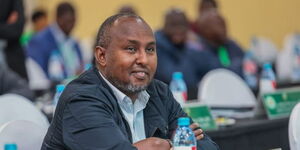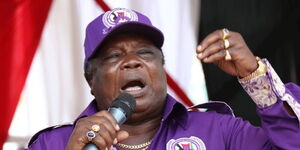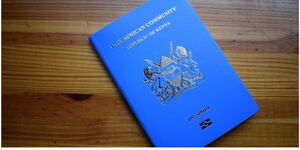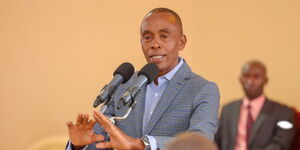Don't count your eggs before they hatch seems to be a mantra that most tycoons on this list have always subscribed to in life.
In their life stories, the tycoons and company owners climbed up the fortune ladder to acquire the very companies that employed them.
In some instances, some worked as hawkers while others were invited to steer companies while they were on the verge of collapse but managed to get them back on course.
Here is a list of business owners who acquired the companies they worked for.
Carole Mandi
In 2010, Carole Mandi, who was then a staff writer at True Love magazine when she decided to bid for the magazine franchise as the parent company opted to shut down its operations in Kenya.
The media personality set up Carole Mandi Media Limited (CMML), and together with her husband raised capital from their savings and literally bought off her employer!
Months after the magazine was pulled off the market, Carole relaunched True Love and Drum magazines.
Chris Kirubi
Capital FM owner Chris Kirubi life story is clearly a grass to grace type.
In a sit-down with a popular series on Capital FM known as Ask Kirubi, the esteemed billionaire revealed that his strong footing started off in property development before he branched out to other industries.
In one particular instance, Kirubi narrated how he started off as a salesperson for an insurance company known as International House Limited before he later acquired its headquarters.
"(Success) was a combination but the property business was where I began. I started on a good footing.
"With International House, I worked for (the insurance company that was headquartered there). I used to sell policies and when they decided to close down their offices in Kenya, they offered me the opportunity to buy the building and supported me in talking to the banks and off we went. So the property was always the foundation," he narrated.
James Mwangi
Equity Bank CEO James Mwangi is among the most impactful billionaires in the country but his journey to success has not always been rosy.
Another tycoon, Peter Munga, had started Equity Building Society (EBS) in 1984 but faced headwinds and tapped into Mwangi in 1993, who was at the time the group financial controller of Trade Bank Group.
He was appointed as the director of strategy and the then failing company and by 1998, his expertise had turned around the company's fortunes.
"I had developed the reputation of a brilliant boy since I was the first boy from my village to get a university degree. I had risen up to be a director at Trade Bank by the age of 28 and my bold decision making packaged me in the eyes of Munga and other EBS executives.
"We didn't have the money... the currency that Equity had was a passion to please the customer. I had a very small staff and none had gone beyond Form Four but they had enthusiasm," Mwangi told Forbes in August 2020.
Today, Mwangi is the largest individual shareholder at Equity Bank with over 120 million shares representing about 5.2% of the company. The shares are worth an estimated Ksh4.2 billion.
4. David Muita
Moran Publishers CEO David Muita's journey in the publishing industry was a rather rough one since he joined Macmillan Publishers in April 1984 as a salesperson after quitting his five-year teaching job.
He climbed up the ladder at the company to become General Manager in 1987 before he was named the managing director in 1990.
He left the company to start his own, Moran Publishers and kicked off his plans to buy Macmillan Publishers Kenya in 2009.
He raised his stake in the company from 5 percent in the company to 97 percent in 2010.
“Through my savings and a loan from the bank I managed to raise the money for the buyout.
"What ownership brought to me is freedom; freedom to make pertinent decisions at that time was what I needed. I needed to develop books in greater numbers than I was before; employ people that I felt would help me get there. For example, I operated with a maximum stuff of 26 people. But as I speak to you now I have 70 employees," stated Muita.
Honourable mentions
There are some other instances where employees who were either turned away by companies returned to buy them out or employees started their own companies altogether.
Mount Kenya University founder, Simon Gicharu, once narrated that he had sought a teaching job at Inoorero University but was turned away.
He further revealed that the cycle repeated itself for a few years that followed but his success never waned.
Several years later, after Gicharu got his grounding financially, he went back to the institution that denied him a teaching job seeking to acquire the whole building.
The late Mzee Joram Kamau is also an inspiration after he founded Tuskys, years after working at Nakumatt as a driver.
Upon his retirement, Nakumatt, which was at the time known as Nakuru Mattresses, helped him start a shop in a remote village 'Rongai Self Service' as a reward for his long term of service.
The company blossomed to become Tuskys Supermarket.












